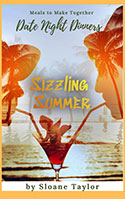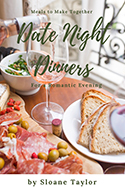Cinch that Belt!
February 28, 2006 | It's All About Writing
Today let’s work on Syntax and Tighten the Writing. By doing the former you will achieve much of the later.
Syntax is the patterns of formations of sentences and phrases from words and the rules of the formation of grammatical sentences in a language.
Don’t you just love Webster definitions? They make everything so unclear.
In plain English Syntax means the word arrangement and sentence structure.
Remember that old song by Tom Jones, and later Joe Cocker, “You Can Leave Your Hat On”? It was sexy, vibrant, and made you want to, ahh… er… just leave your hat on.
The phrasing is great for lyrics and dialogue but oh so wrong for narrative. Why? You should never end a sentence with a preposition. Yes, it sounds right. Yes, we talk that way. Grammatically it is incorrect.
How should it read? “You can leave on your hat.” Sure doesn’t have the same impact does it?
Frequently grammatical sentences don’t have the same effect. If you find this to be true, save the prepositional endings for your dialogue. Sometimes you can’t help but use them in narrative because you need that force or dramatic effect. It’s okay but do it sparingly.
Here’s an example of what Redmond O’Hanlon, Into the Heart of Borneo, Vintage 1987, got away with in his novel;
“My companion, James Fenton, however, whose idea the venture was, enigmatic, balding, an ex-correspondent of the war in Vietnam and Cambodia, a jungle in himself, was a wise old man in these matters.”
I don’t know if Fenton did this as a joke on his editor, if it got missed in the edits, or he wanted this sentence to read as written. But I will guarantee you won’t get away with this type of writing with today’s editors. Be sure to read your work aloud and correct any sentences that are convoluted.
ALOUD is the key word here. Read your work aloud. I can’t stress this enough. It’s the only way to allow your ear to pick up the errors. Sure you’ll feel stupid doing it, even if you are home alone locked in your closet. Get over it. We all experience the same reaction. Here’s your option; let your book go to an editor with written garble and expect a nice form rejection in the return mail.
When you read aloud look for;
• Does your intent come across – action, suspense, romance, sorrow?
• Does something detract from your meaning?
• Fine-tune your sentences until they sound perfect, rhythmic, to your ear.
To further Tighten the Writing get rid of unnecessary words. It will make your writing sound stronger. Those expendable words are, but not limited to;
• A little
• Almost
• Anyway
• At the present time
• Began to
• By means of
• Certainly
• Considering the fact that
• Definitely
• Even
• Is/was/were
• Just
• So
• Some
• That
• Very
Be concise, don’t ramble on with your descriptions. Think about the sections you skim or avoid when you read a novel. Don’t allow that to happen to your reader. Make sure you haven’t flooded a section with so much back story or description you are boring the reader. Get rid of the excess because most of it won’t matter.
Please don’t write you book via Roget’s Thesaurus. Today’s editors want meat in a book, not fat. Your reader doesn’t want to be written down too. Use the everyday words of your speech and not some $20.00 word that has your reader reaching for their Webster’s.
Avoid clichés like the plague. Get the idea? You are a writer – so write something new.
I’m not being bitchy here. I want you to get published. We should have millions of new books available from the reliable E-publishers and on the shelves of every type bookstore. But if you don’t do your job the numbers will be low and our future generations won’t have the role models they need.
Break out your manuscript, once again, and read it aloud. We’re almost done. Friday we’ll Line Edit.
Until then, Happy Writing…
Sloane





Keep going Sloane. I’m paying close attention. AND reading outloud. At least my beagle, Skye likes it. She sleeps as I read.
On February 28th, 2006 at 2:12 pmWork, work, work…
Who knew that this writing gig would be so…difficult.
Off to read in the closet.
On February 28th, 2006 at 3:11 pmMy next door neighbor has taken to sitting out on her front porch so she can listen to me reading. She can hear me, faintly, because it’s so dead quiet here in the park, and because I am reading carefully – pronouncing everything.
She doesn’t like the occasional f-word or the damns and hells, but then I’m not putting as many of those in as I used to.
Sloane, you keep this up. “Don’t stop!” I’m learning how to write, here. And Dear God, do I need the lessons!!
On February 28th, 2006 at 3:31 pmYou three are very encouraging.
Yasmine, Skye has good taste in her reading pleasure.
Kate, I agree with you, this writing stuff is WORK. Curses to Mrs. Fenstimacher, my eleventh grade English teacher.
Oh, Forrest, I know this is an over eighteen site/blog, man all I want to say is; (do I dare? Shit yeah!) If your neightbor has a fucking problem, hmm, I guess she’s fucked! That felt good. And I don’t believe for a minute you or the girls need all this advice.
On February 28th, 2006 at 4:05 pmI read my stuff aloud all the time, Sloane. Even though I feel silly. I don’t know what I’d do if I was in a group and asked to read something of mine. Guess I’d have to find the less sexy parts to spare my modesty. LOL
On March 1st, 2006 at 2:01 pmYou’re too funny.
Don’t you read aloud with your CPs? Our group does and it’s embarassing. I find myself ratteling it off faster then a blue light special at K-Mart.
On March 1st, 2006 at 2:38 pmUm, Ms. Taylor, well, you see, my degree is in Journalism. That’s not Novels. That’s not Dialogue. That’s not Plot developement. That’s not polished Hook development. (No, hook development where I came from was “Who What When Why Where and How – all in the SAME FUCKING SENTENCE!!) So writing for “pleasure” is a whole ‘other ball game for me.
Still, I’ll be honest: I’ve been writing mini-novellas ever since I was a kid, but my writing consisted of hyperbole strung out like a stainless steel mesh blanket over a bed of petunias. Crushing, utterly crushing, like you’d expect from an elephant rolling over several times to get the petunia scent all over the shoulders (hot date, y’know) or from a moose in heat for a GMC Yukon SUV, thinking that the aroma – however delicate – of petunias would be a good counterpoint to the wafting notes of composted dinosaurs (gasoline). Yeah, I wrote like that all the time. It was ghastly, and it’s even worse since my folks died back in 99 and I have been getting “care packages” from my sister and SIL, who have gone through ALL the stuff in the parents’ house and shipped it off to each of us. “Well, you wrote all this stuff, you may as well have it.” And reading just one or two off the top of the pile shows me how far I HAVEN’T come.
So your lessons on how to tighten up, neaten up, dis-conjugate and un-proliferate the mess I call writing are really REALLY needed.
Thanks ever so much, again, for all the help. DON’T STOP!
On March 1st, 2006 at 6:29 pmSIR, Yes Sir!! Forrest, I have to tell you; you have one fantastic, creative mind. I love your sense of humor and I enjoyed what you wrote. Do. Not. Stop.
On March 2nd, 2006 at 9:06 amAw, shucks. Thanky thanky.
On March 2nd, 2006 at 7:12 pm